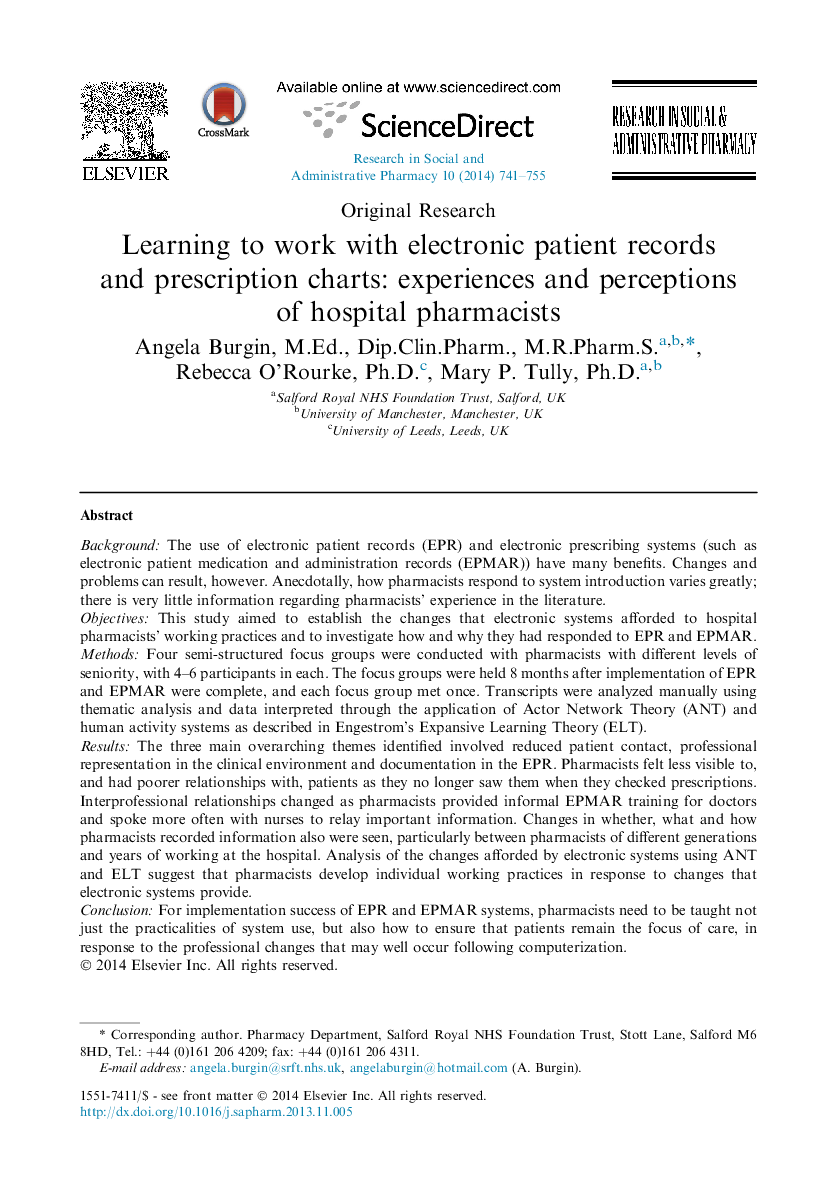| کد مقاله | کد نشریه | سال انتشار | مقاله انگلیسی | نسخه تمام متن |
|---|---|---|---|---|
| 2508416 | 1117609 | 2014 | 15 صفحه PDF | دانلود رایگان |
BackgroundThe use of electronic patient records (EPR) and electronic prescribing systems (such as electronic patient medication and administration records (EPMAR)) have many benefits. Changes and problems can result, however. Anecdotally, how pharmacists respond to system introduction varies greatly; there is very little information regarding pharmacists' experience in the literature.ObjectivesThis study aimed to establish the changes that electronic systems afforded to hospital pharmacists' working practices and to investigate how and why they had responded to EPR and EPMAR.MethodsFour semi-structured focus groups were conducted with pharmacists with different levels of seniority, with 4–6 participants in each. The focus groups were held 8 months after implementation of EPR and EPMAR were complete, and each focus group met once. Transcripts were analyzed manually using thematic analysis and data interpreted through the application of Actor Network Theory (ANT) and human activity systems as described in Engestrom's Expansive Learning Theory (ELT).ResultsThe three main overarching themes identified involved reduced patient contact, professional representation in the clinical environment and documentation in the EPR. Pharmacists felt less visible to, and had poorer relationships with, patients as they no longer saw them when they checked prescriptions. Interprofessional relationships changed as pharmacists provided informal EPMAR training for doctors and spoke more often with nurses to relay important information. Changes in whether, what and how pharmacists recorded information also were seen, particularly between pharmacists of different generations and years of working at the hospital. Analysis of the changes afforded by electronic systems using ANT and ELT suggest that pharmacists develop individual working practices in response to changes that electronic systems provide.ConclusionFor implementation success of EPR and EPMAR systems, pharmacists need to be taught not just the practicalities of system use, but also how to ensure that patients remain the focus of care, in response to the professional changes that may well occur following computerization.
Journal: Research in Social and Administrative Pharmacy - Volume 10, Issue 5, September–October 2014, Pages 741–755
